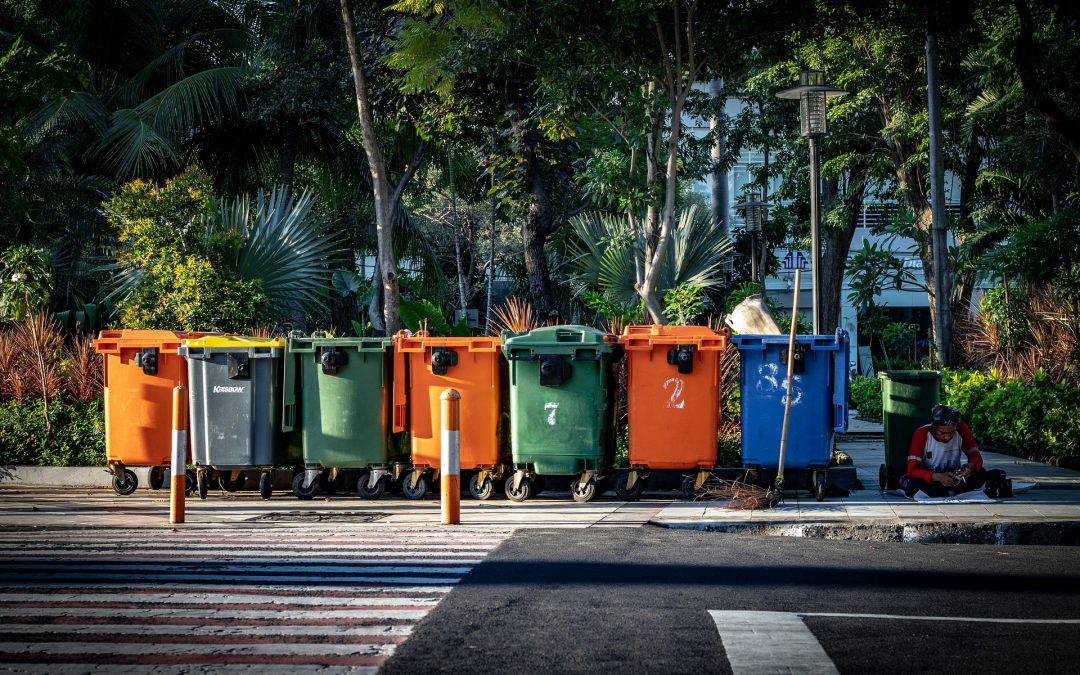‘Going green’ has become a more and more popular initiative over recent years, with many of us realising the need to protect our environment and decrease the effects of global warming.
Although many complexes and housing estates have been relatively slow to pick up the trend, there is increased demand for homes and estates that are doing their bit for the environment. And there are so many ways that we can do our part in saving the environment, with many of them starting at home.
So, what does it even mean to ‘go green’?
When most of us hear the term ‘going green’, our thoughts almost always jump straight to recycling. But going green is so much more than that. It means living life in a way that is friendly to the environment and is sustainable for the earth.
In general, there are three steps that we can take towards becoming more sustainable.
1. Reduce
Reducing means trying to simplify your life as much as possible – if you don’t need it, don’t buy it. If you do need it, look at brands and items that have the least amount of packaging and avoid items packaged for single use.
2. Re-use
Switch from buying disposable items such as shopping bags to reusable ones and try buying, selling, or donating used items.
3. Recycle
Look for products that are packaged in recyclable materials and dispose of these items in dedicated recycling bins.
7 Ways to help your complex go green
1. Get the body corporate involved
It goes without saying that you’ll need the body corporate’s approval for making changes around your complex or apartment building. But having their dedication (and budget!) from the get-go will help with the smooth sailing of ‘Project Go Green’.
Unfortunately, there are a few costs involved when starting out with adapting your home to a green home or complex. Also, you’re going to need the body corporate involved to help encourage all residents (owners and tenants) to jump on board. This may be one of the trickier aspects as not everyone will be as ‘green’ minded as you are.
2. Revamp your bin room
Let’s be honest, taking the rubbish out is no one’s favourite task, so why not give the rubbish room a bit of a makeover. A fresh coat of paint, dedicated recycling bins and a box-deconstruction area can go a long way to making bin day a less painful experience.
Include a recycling factsheet in the newly established recycling area, making it easy for residents to understand how and what they can recycle.
3. Provide enough recycling containers
Make sure there are enough recycling bins in the rubbish area as well as around the complex. Encouraging residents to recycle is one thing, but if there’s nowhere for them to put it, then there’s no point.
In the bin room, have designated wheelie bins for the recycling of paper, plastic, and glass. You could also provide plastic crates for the safe collection of glass bottles.
4. Create a gardening space
Letting residents grow flowers and vegetables can increase property value by making the grounds look more beautiful and encourage residents to stay longer. Plus, there’s nothing better than home-grown veggies!
If you’re in an apartment block, why not get approval for standardised window boxes or look into the possibility of a rooftop garden.
5. Make the complex water-wise
Capturing rainwater with the use of JoJo water tanks or other water storage solutions is also an effective way to save money. The water is stored in the rainwater tanks for later use to fill up the communal swimming pool and to water the gardens.
If the complex has expansive gardens, another idea is to slowly ensure that only indigenous plants and trees are planted and watered using a drip-irrigation system.
Residents should also be encouraged to install taps and shower heads with low-flow aerators (saving them money too) and to make sure to fix any leaks or dripping taps as fast as possible.
6. Green energy
Complexes use electricity 24/7 – even when you’re not there! It’s used for the communal swimming pool and clubhouse, garden services, external lighting, and electric fencing to name but a few. And that electricity bill is paid for by the body corporate out of your levies.
By having solar panels installed in the complex, the amount of traditional energy needed is reduced, thereby saving the body corporate money and thereby saving you money.
Energy-saving light bulbs should also be used in all common areas, as well as the complex external lighting, to help bring down the cost of electricity.
The advantages of solar energy is not just cost saving, of course. The most important thing is that solar energy is truly a renewable energy source.
7. Make it fun
If there are lots of kids in the complex, why not make a game out of recycling. One idea is to install large basketball hoops with nets that ‘capture’ the rubbish. It’s an interactive way to get kids involved at a young age and separates the recyclables at the same time!
With the popularity of eco-estates and homes on the rise, many buyers and renters are looking for a property that aims towards sustainable, off-the-grid living. Making your complex greener increases its marketability and can help enhance your own unit’s salability.
Going green can be an expensive project in the short-term but is highly beneficial in the long run. Not only are you doing your bit for the environment, but you’re also cutting down on costs.

